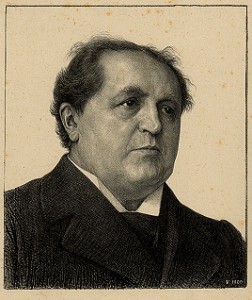


In light of Iran’s Holocaust Denial conference, you’d think we would hear something from some of the authors who have made a name for themselves attacking the Catholic Church for not doing enough to prevent the Holocaust. Where is John Cornwell, author of Hitler’s Pope, a scurilous attack on Pius XII for not doing enough to save Jews?
While we wait to hear from John Cornwell or James Carroll (author of Constantine’s Sword) or Susan Zuccotti (author of Under His Very Window) to speak out, let the record show that the Catholic Church is speaking out against the denial of the Holocaust.
The Holy See itself issued a statement, the day after the Iranian onference opened.
Code: ZE06121205
Date: 2006-12-12
Holy See Says the Holocaust Is a "Warning"
Statement Issued After Tehran Conference Opens
VATICAN CITY, DEC. 12, 2006 (Zenit.org).-
The Holy See considers the Holocaust of the Jews during World War II as an "immense tragedy" which must be a "warning" to consciences.
So says a press statement issued today by the Vatican press office, a day after the opening in Tehran, Iran, of a conference that questioned the Holocaust.
The forum was organized under the sponsorship of Iranian President Mahmoud Ahmadinejad, who in a televised speech last December labeled the Jewish Holocaust a "myth."
Today’s press statement ratifies the Holy See’s position, expressed on March 16, 1998, with the document of the Commission for Religious Relations with the Jews, entitled "We Remember: A Reflection on the Shoah."
The Vatican press statement explains that "The past century witnessed the attempt to exterminate the Jewish people, with the consequent murder of millions of Jews, of all ages and all social categories, for the sole fact of belonging to this people."
"The ‘Shoah’ was an immense tragedy, before which it is not possible to remain indifferent," the text says.
Hence "[t]he Church has a profound respect and a passion for the experience lived by the Jewish people during World War II," it states. "The memory of those terrible events must be a warning leveled at consciences to eliminate conflicts, respect the legitimate rights of all peoples and exhort to peace, in truth and in justice."
"This position," concludes muniqué, "was affirmed by Pope John Paul II at the Yad Vashem Monument to Memory in Jerusalem, on March 23, 2000, and confirmed by His Holiness Benedict XVI during the visit to the Auschwitz extermination camp on May 28, 2006."
The U.S. Cardinal Keeler spoke out against Holocaust denial:
Code: ZE06121426
Date: 2006-12-14
U.S. Cardinal Rips "Revisionist" History of Holocaust
Echoes Holy See in Wake of Iran Conference
WASHINGTON, D.C., DEC. 14, 2006 (Zenit.org).-
Cardinal William Keeler says the U.S. bishops stand in solidarity with the universal Church in condemning "revisionist history" that seeks to minimize the horror of the Holocaust.
The cardinal, who is episcopal moderator for Catholic-Jewish Relations for the U.S. bishops’ conference, today issued a statement entitled "We Must Remember the Shoah."
That statement cited, in turn, muniqué issued Tuesday by the Holy See alluding to the teaching of Popes John Paul II and Benedict XVI: "The Shoah was an enormous tragedy, before which one cannot remain indifferent … the memory of those terrible facts must remain a warning for consciences with the aim of eliminating conflicts, respecting the legitimate rights of all peoples and calling for peace in truth and justice."
Cardinal Keeler, archbishop of Baltimore, said: "Here in the United States, we have a wide range of resources to use in fostering Holocaust education not only in Catholic schools but in private and public schools as well."
He noted that in preparing those resources, the U.S. bishops’ Committee for Ecumenical and Interreligious Affairs cited two major reasons why studying the significance of the Holocaust should be central to the curriculum of Catholic education.
"First, the Holocaust was not a random act of mass murder but ‘a war against the Jews as the People of God, the First Witness to God’s revelation and the eternal bearers of that witness through all the centuries,’" the cardinal wrote in his statement. "Second, future generations need to be ever vigilant so that ‘the spoiled seeds of anti-Judaism and anti-Semitism (will) never again be allowed to take root in the human heart.’"
Cardinal Keeler issued the statement against the background of a two-day conference this week in Iran at which speakers sought to diminish the scope of the Holocaust.
Where is the American Left on this issue?
Cross-posted at my personal blog









